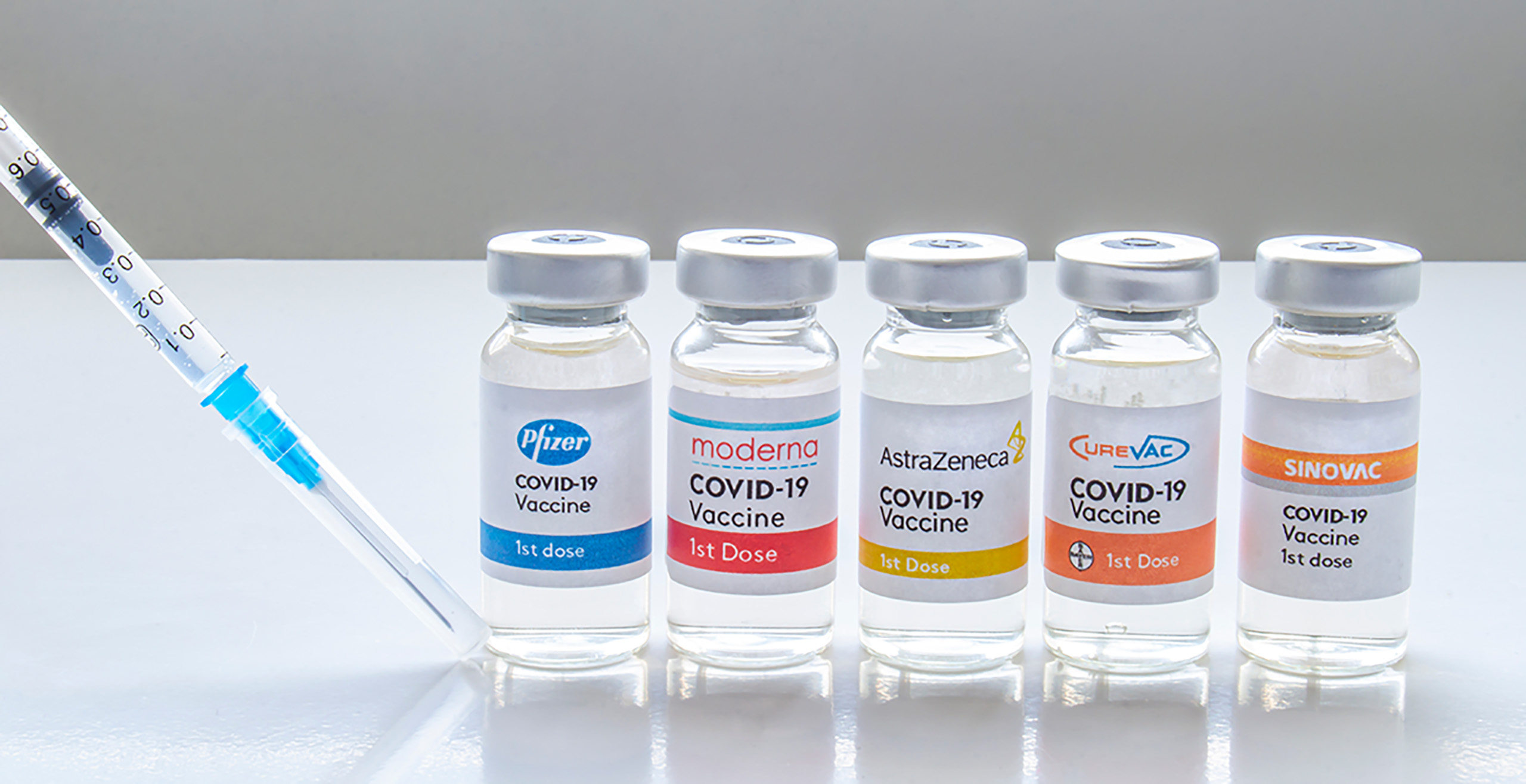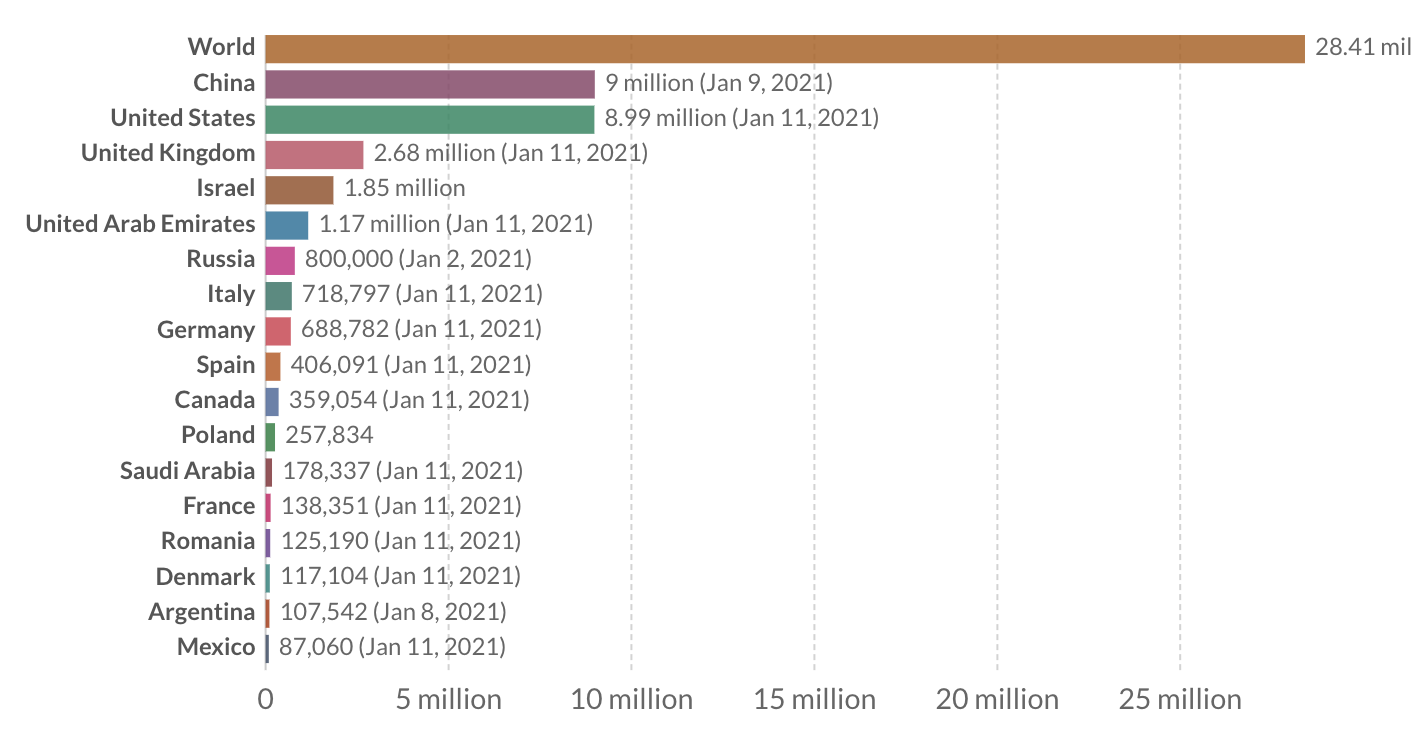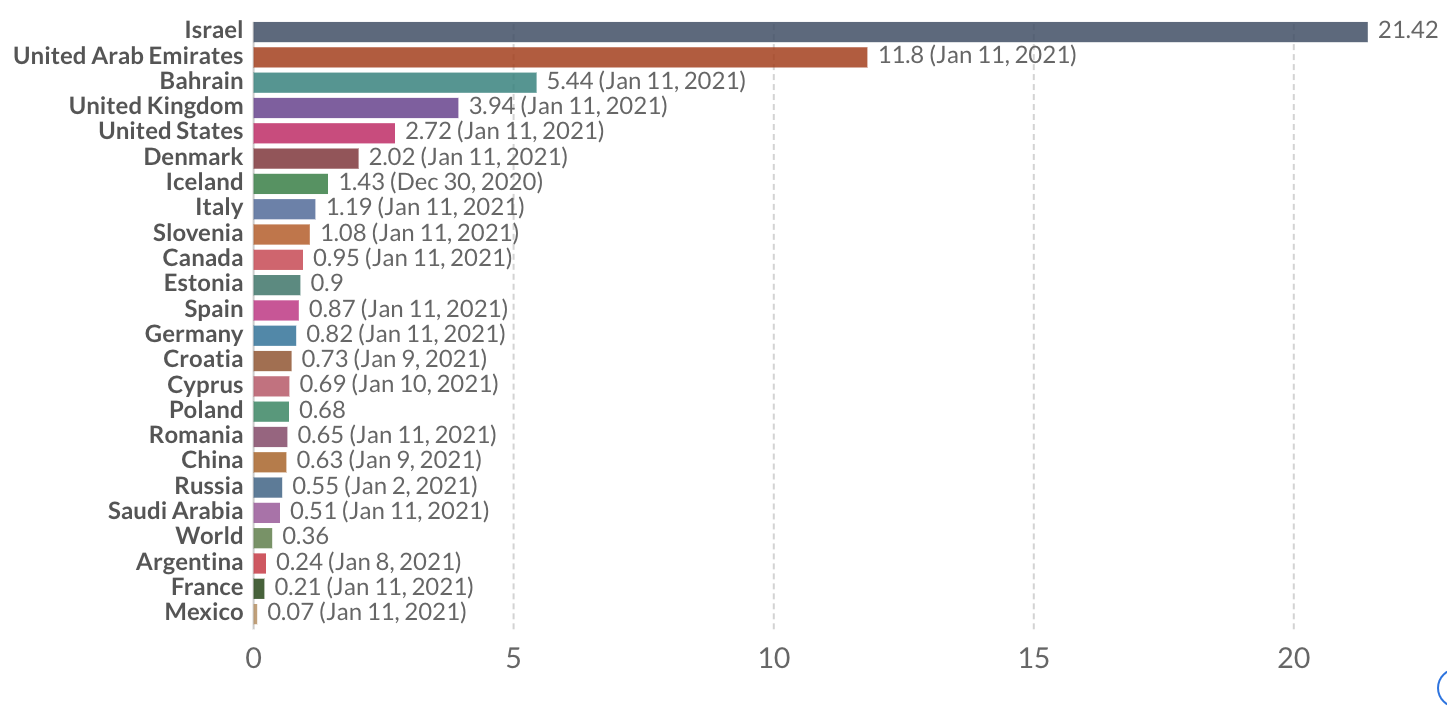Global overview of COVID-19 vaccinations

Concept photo: Bottles with labels of Covid-19 vaccines for various popular vaccine brands, Calgary, Alberta, Canada.
Photograph By Oasisamuel (Shutterstock, 2020)
Global overview of COVID-19 vaccinations
The announcement of the first COVID-19 vaccination on December 8, 2020 marked the beginning of a global effort to prevent the spread of the Coronavirus. Margaret Keenan, 91, was administered the Pfizer injection at University Hospital in Coventry, England (BBC, 2020).
Since then, countries have been pushing to see the roll out of the vaccine accelerate, in the race to beat the pandemic which has infected of 91 million people worldwide and claimed the lives of almost 2 million (Worldometer, 2021a).
The data, so far
Data collected shows that China and the United States (US) have administered the most vaccinations, with 9 million and 8.99 million respectively. The country with the third highest vaccination number is the United Kingdom (2.68 million), followed by Israel (1.85 million), and the United Arab Emirates (1.17 million). Other nations are also beginning to administer a vaccine. However, each is yet to reach over 1 million administrations. In total, there have been 28.41 million COVID-19 vaccines administered globally (Our World in Data, 2021).

Whilst China and the US are leading the way in terms of volume, Israel is the country which has administered the most doses per 100 of the population (21.4). Comparatively, the US is currently fifth in the global rankings of vaccinations administered per 100 people (2.72), and China is 18th (0.63), relative to its substantial 1.4 billion population (Worldometer, 2021b).

Equal access to vaccines
Despite almost 30 million vaccine administrations, globally, data shows that many of the world’s underdeveloped countries are yet to begin the vaccine rollout (Our World in Data, 2021). At a press conference on January 11, Director-General of the World Health Organization (WHO), Tedros Adhanom Ghebreyesus, highlighted the urge for the global rollout of vaccinations for high-risk populations within the next 100 days (United Nations, 2021a).
Of the 42 countries currently rolling out COVID-19 vaccines, 36 are within high income countries (United Nations, 2021b). The Gavi COVID-19 Vaccines Advance Market Commitment (COVAX AMC) has been developed as the financing instrument which will allow 92 participating low-income and middle-income economies to access donor-funded doses of COVID-19 vaccines (Gavi, 2020).
Two billion vaccines have now been secured by Gavi, which will be distributed as soon as they have been delivered. With richer nations having the financial means to purchase vaccines before poorer nations can do so, which can in turn increase the price of vaccines, this is an important step in ensuring the saving of lives and the stability of health systems worldwide (United Nations, 2021b).
The politicization of vaccination
Equal access to COVID-19 vaccinations is paramount not only to ensure the safety of the world’s population, but also in maintaining national and international relations. Although Israel is leading the way in terms of vaccinations administered per 100 people (approximately a fifth of its population), we are seeing the result of deeply entrenched discrimination towards Palestinians.
Whilst the vaccination program is offered to residents of Israel, Israelis living in the West Bank, and Palestinian residents of Jerusalem, almost 5 million Palestinians who are living under Israeli military occupation in the West Bank and in Gaza are not yet entitled to receive the vaccine (Amnesty International, 2021). Evidently, funding is not the only obstacle facing vaccination.
Towards global immunity
For vaccinations to work successfully, it is estimated that around 70% of the population must have received it. This percentage is thought be higher due to the highly infectious nature of COVID-19, which is still spreading rapidly (Cheng & Keaten, 2021).
At the current rate of vaccination rollouts, WHO chief scientist, Dr. Soumya Swaminathan, has reported that it is not possible to create high levels of population immunity in 2021. However, with Gavi beginning to administer vaccinations to poorer nations very soon, it is hoped that this will diffuse the concentration of immunity, a step forward in protecting the world’s most vulnerable populations (Cheng and Keaten, 2021).

Article by
Costadina Tsoukala-Steggell

Categories



